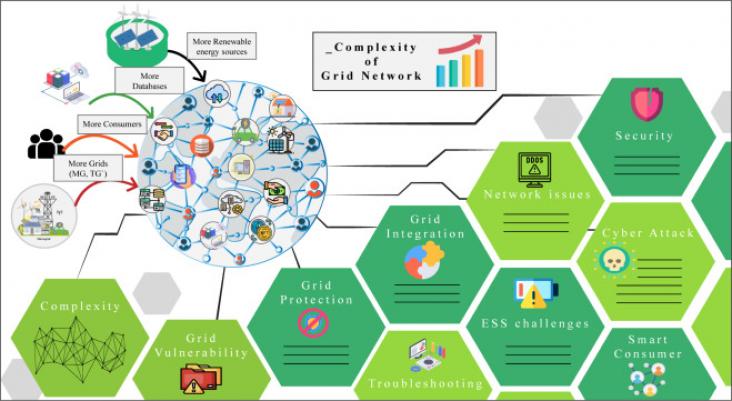In this paper the authors discuss the geothermal potential of sedimentary basins, and their role in achieving the decarbonisation of the energy sector

This article supports SDGs 7,9 and 11 by proposing that the real-time online analysis, data integration, and prediction of future status, monitoring, decision-making, and self-healing of the power grid can be achieved, providing high security, reducing the risk of power grid accidents, and serving multiple fields of producers, consumers, and the entire country.
In this article, the authors used an Energy Transition Index to characterize the city-level energy transitions from energy system performance and transition readiness dimensions for 282 cities in China. They estimate that China’s energy and carbon intensity could decrease by 34% and 32%, respectively, and that carbon per capita could fall by 17% if each city modestly follows the sustainable development path forged by the best performing cities with similar economic structures.
Geopolitical applications of negative emissions and solar geoengineering technologies.
Biomass is a sustainable and review source. However, its conversion to chemicals is always challenging. This article produces high-value bioadhesive materials as a byproduct of chemicals from biomass. Using advanced technology such as electrochemical oxidation, clean energy and fuels can be produced from biomass, addressing SDG 7&13.
This paper shows that although climate policies can sometimes slow the pace of economic growth, in the long term the benefits of avoided climate change impacts will overweight policy costs
This Article supports SDG 3 and 7 by providing robust evidence of an increased risk of cardiovascular or respiratory disease within 24 h after exposure to air pollution or temperature.
Valuable chemicals can be produced from agricultural apple fruit waste, which needs to be well managed and has the potential to improve sustainability. This article uses a low-cost catalyst to enhance the efficiency of chemical production from apple fruit waste. This work contributes to affordable energy production, economic growth and CO2 emissions reduction, which are related to SDG 7, 8 &13, respectively.
To achieve SDG 13 (Climate action), urban areas must reduce energy use and transition to greener energy sources. This One Earth Research Article shows how innovative photovoltaic windows could contribute, especially in buildings with lots of windows. The work also supports supports sustainable industrialization and innovation (SDG 9) and affordable clean energy (SDG 7).
A review of climate futures. This review helps substantiate how disciplinary and geographical assumptions and norms shape policy choices.
